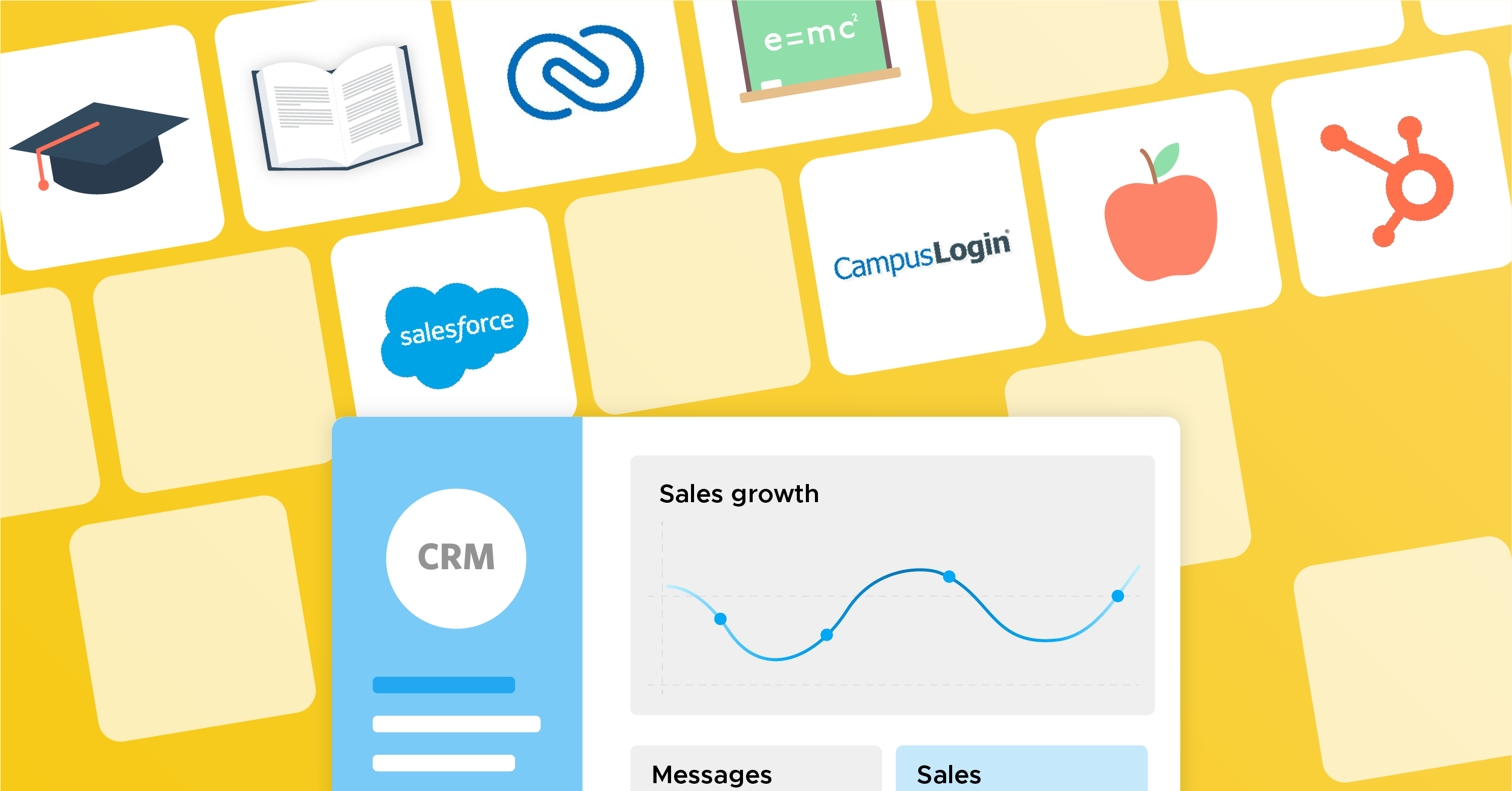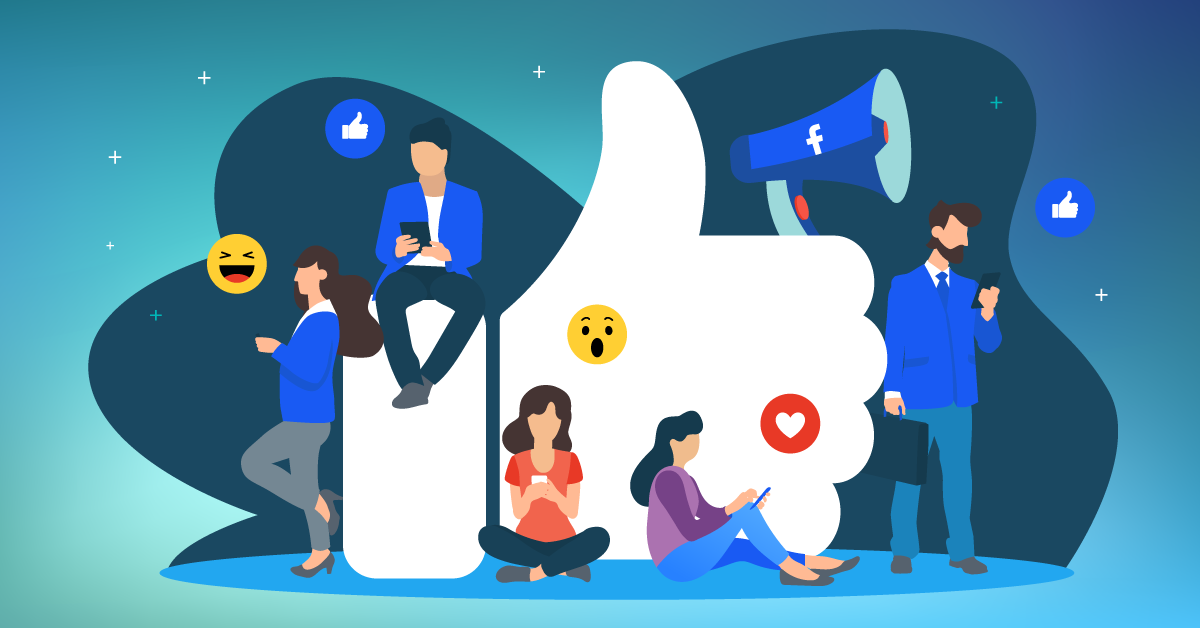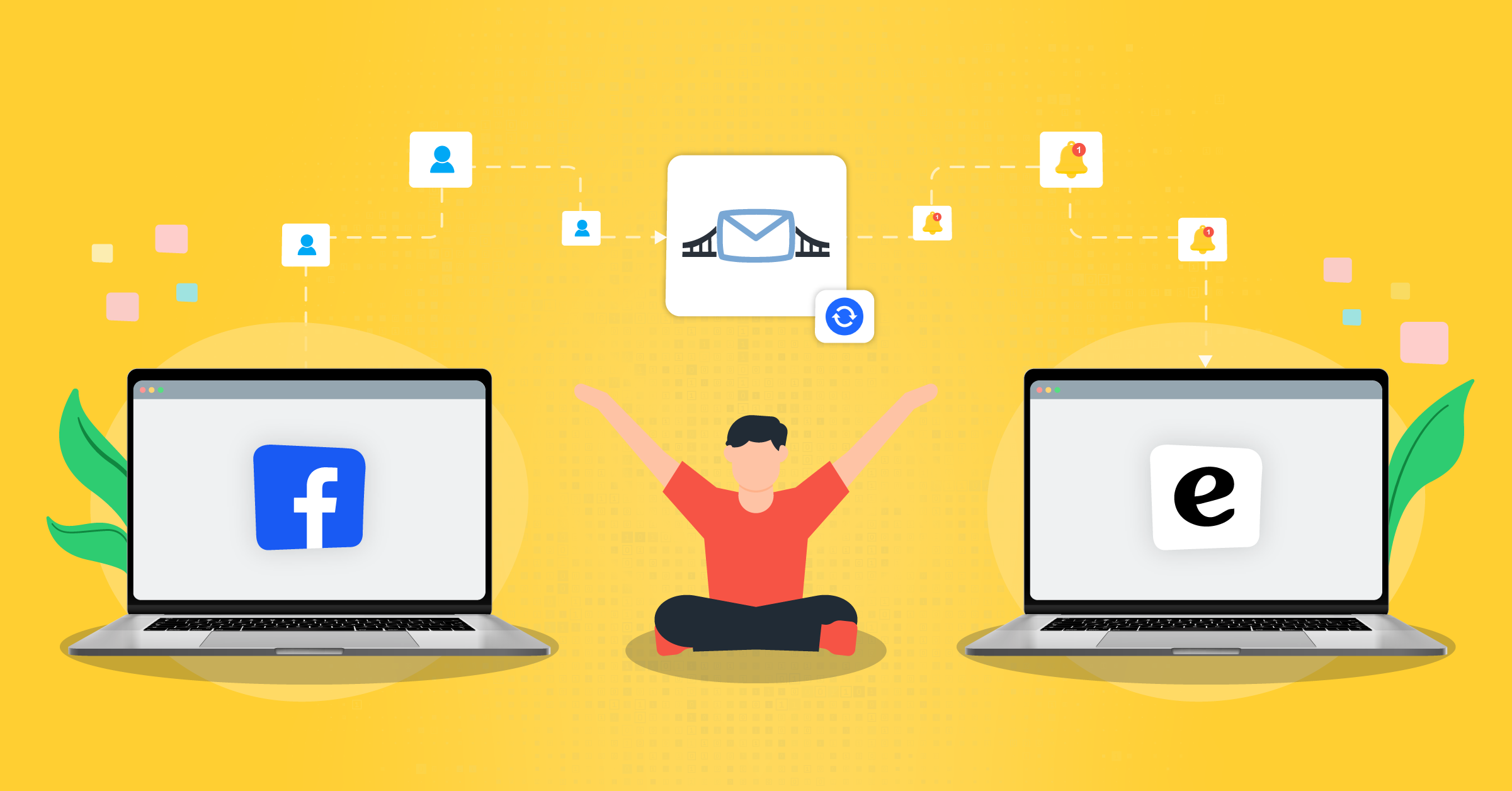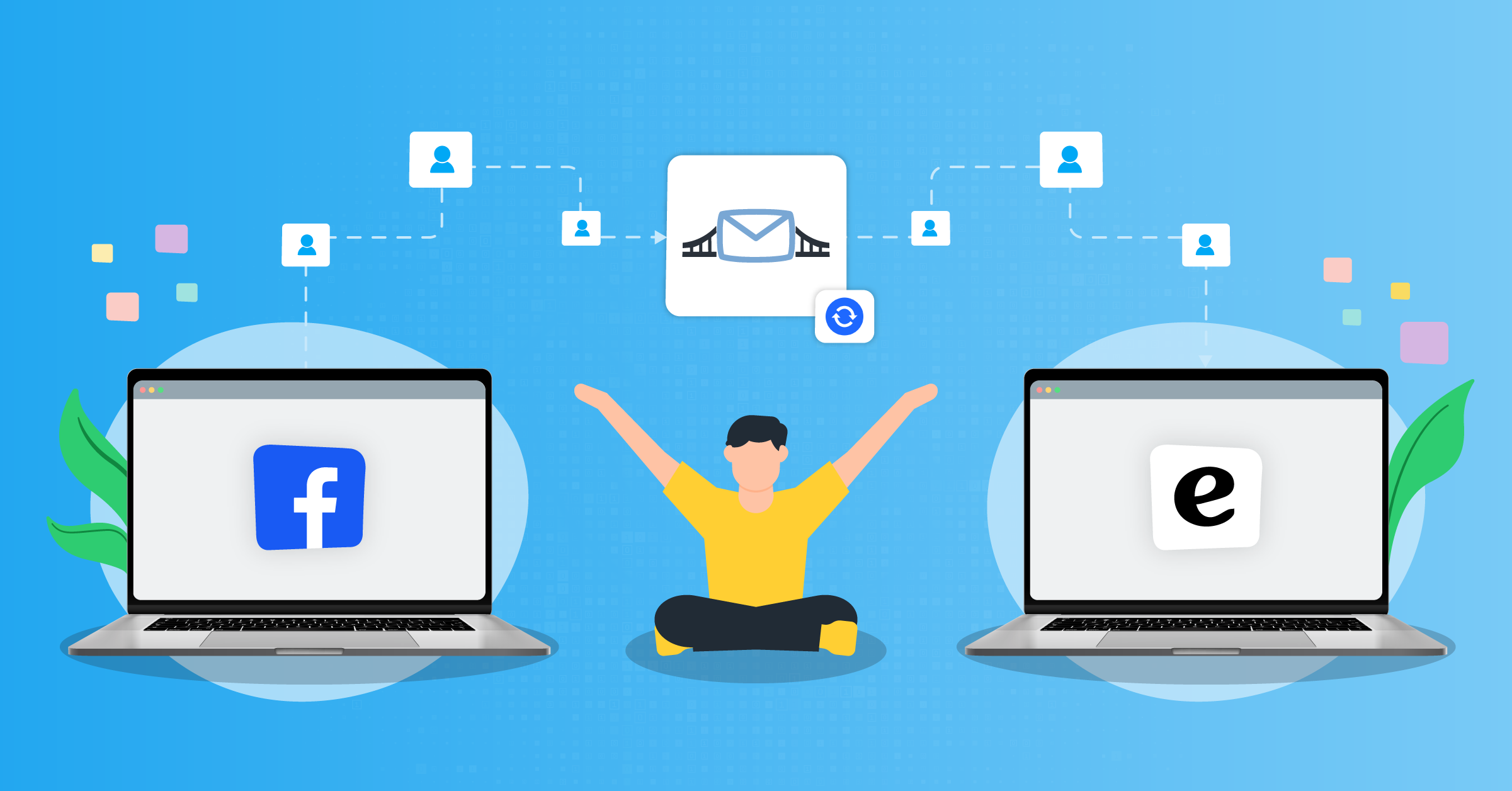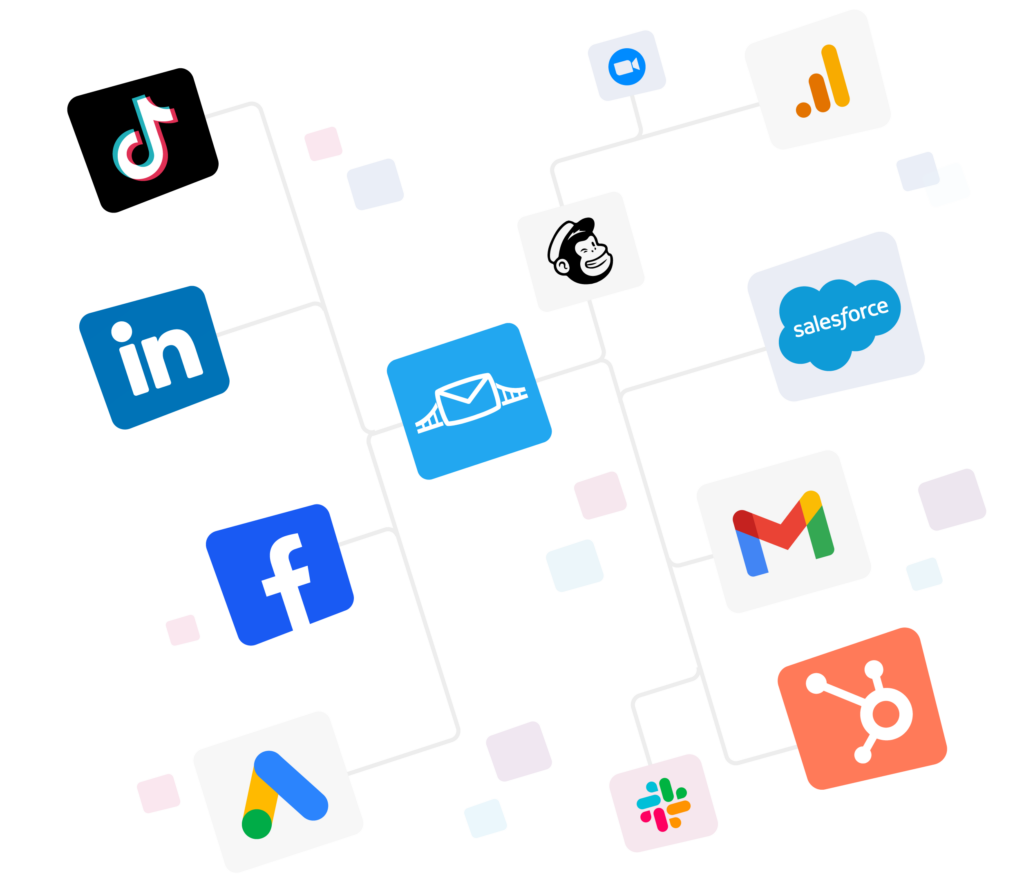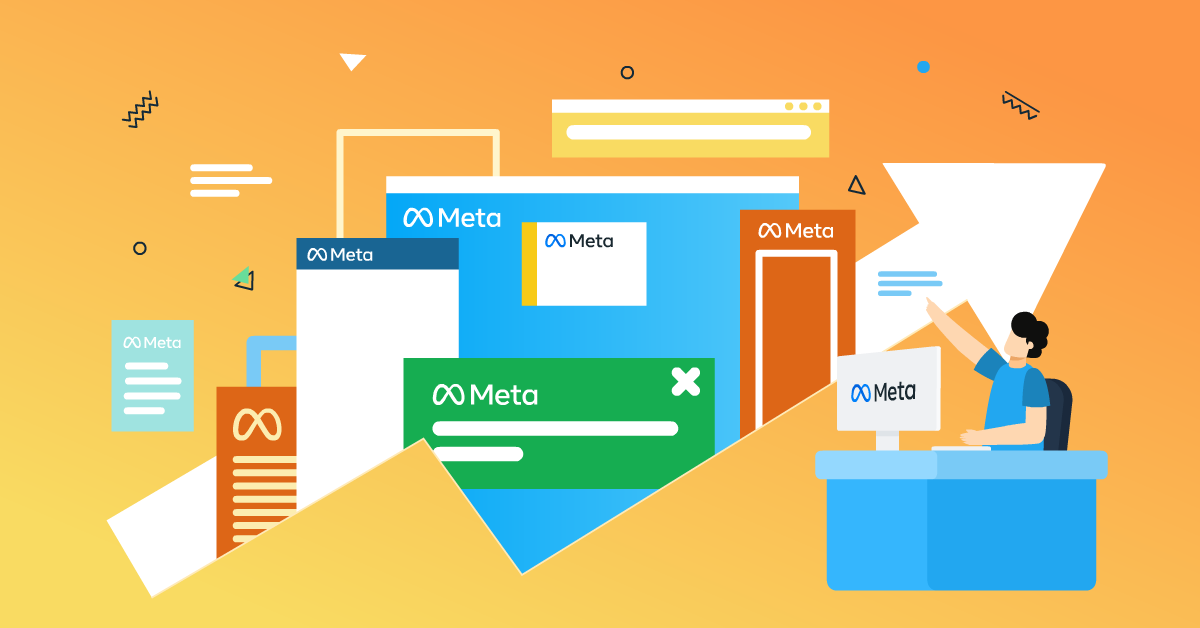
Digital ad spending is set to increase in 2026. Agency owners believe that search engine optimization, content marketing, and digital channels like Facebook will bring the best returns next year.
We used to think of companies as “going viral,” but the real question is, how did they achieve such rapid growth? How did they create huge consumer interest?
If you’re running an advertising agency or working in digital services, you must stay up to date with the latest trends.
Where to begin?
Start by streamlining your internal processes so your team can focus on building relationships rather than constantly putting out fires.
This guide will walk you through how to run Facebook ads for digital marketing agencies, along with a few practical tips and must-have tools, such as:
Why use Facebook ads for digital marketing agencies
Do you want to show off your skills to everyone? Advertising on Meta’s platforms could be the way to do it.
Marketing agencies need to be good at promoting their current clients, but they should also show off what their own agency can do. They often show their value via metrics.
However, it’s equally important to showcase their robust workflow structure, which can serve as a basis for trust creation.
Exploring full-service creative agencies can reveal a range of innovative strategies that blend branding, design, and digital marketing to help businesses stand out.
This is true for your clients’ businesses as well. A sure way to stand out is to promote the brand (yours or theirs) across Meta technologies (Facebook and Instagram) to attract more clients fast.
Promoting your clients’ businesses
Companies grow faster by showcasing the value of their products. The ads you create should fill the gap and reflect this value.
Showcase ‘brand expertise’ by sharing insights, expert-written blogs, free webinars, and live sessions to attract potential clients. Make sure to reply to every comment, mention, and question on Facebook.
Also, remember to post regularly and share success stories to build trust with your followers. This will foster trust and recognition, which can ultimately lead to conversions and sales.
Here’s the ultimate guide for agencies and freelancers on how to run Facebook ads for clients.
Promoting your own agency
Facebook ads aren’t just for your clients; they’re also a great way to promote your own services. Use Facebook ads to display your agency’s successes through case studies and testimonials. This lets you capitalize on new clients who are looking for proven results.
Running out of fresh ideas for inspiring or evergreen ad content? Look at what successful agencies are doing.
All this is to help your customers move through your Facebook ads funnel. Then, use your CRM’s user journey insights to nurture them with the latest product launches, special offers, and more.
Find out more about how to scale your Facebook ads here.
How to get clients for a Facebook ad agency: Top three tips
A big problem for many agencies as they grow is spending too much time promoting other businesses. What they overlook is that they need to dedicate enough time to promoting themselves as well. It’s all about finding the right balance.
You need to know, for instance, how to get clients for Facebook ad agencies or how to nurture your existing clients.
1. Generate referrals (the easy way!)
Happy clients are your best advocates! Just ask your current and past clients if they know anyone who might need your services. This is a win-win solution to get more business!
Offer a referral program with incentives to encourage participation. This could be a simple referral form with a discount or a free service.
2. Show off happy customer reviews
Get your satisfied clients to leave you positive reviews on platforms like Google or even your Facebook page. You can ask directly, add review links to your website, or even send out feedback emails after a successful campaign.
Don’t forget to respond to all reviews (positive or not). This shows you care and helps build trust with future clients.
3. Network with complementary businesses
Partner up with businesses that complement your services. For example, if you specialize in Facebook ads, you might need services from web designers, PPC agencies, or content creators with whom you can team up for ongoing projects. The idea is that you help them, and they help you.
How to categorize Facebook ad costs for an agency
Meta uses an auction system where ad costs vary depending on factors like your bid, ad relevance, and audience competition.
So, how do you break these costs down for your agency’s clients and bill them?
Let’s take a look at a few tips:
1. Understand Facebook ad costs
Facebook ad costs are decided by key factors, including:
- Your bid or the maximum amount you’re willing to pay for a result (like a click or view). You can use automated bidding or set manual bid caps.
- Higher ad relevance to your audience means you’ll pay less. Basically, Meta rewards ads with high relevance by lowering their costs.
- Estimated action rates by Meta about how likely users are to engage with your ad. Higher predicted engagement often results in lower costs.
2. Bill your clients based on performance metrics
Identify KPIs aligned to the client’s goals and bill accordingly. Here’s what this means:
- CPC (Cost per Click): If their goal is to drive traffic to their website, bill based on the average cost per click.
- CPM (Cost per 1,000 Impressions): For brand awareness campaigns, calculate based on impressions.
- CPA (Cost per Action): For conversion-based goals (like purchases or sign-ups), charge based on the cost per action.
3. Set clear budget expectations
Most of your clients might be asking themselves, “How much should I spend on Facebook ads?“
You must help your clients understand what they’re paying for by:
- Providing a detailed breakdown to show them how much of their budget goes to ad spend and how much covers your management fee.
- Deciding on budget flexibility. Some clients may want to stick to a set budget, while others are open to scaling up based on results. Clarify this in your agreements.
- Offer clients a flat monthly retainer that includes a set amount of ad spend and your management fee. This keeps billing predictable and avoids any surprises.
Tips for running effective Facebook ads for digital marketing agencies
1. Optimize your ad content
Your ads need to stand out in a crowded feed. High-quality visuals paired with compelling copy can make a big difference.
You can upgrade your Facebook ad content and achieve better conversions. For starters, focus on crafting content that truly resonates with your audience.
Your content should also be relevant, original, and insightful, providing real value to your readers.
Incorporate exciting visuals like infographics, illustrations, and images to make your content more appealing. Additionally, using videos can especially improve engagement levels by adding an element of storytelling that captures and retains the audience’s attention.
Keep these factors in mind:
Here’s how to create ads that grab attention:
- Use high-quality images or videos and avoid stock photos that look generic.
- Keep the message simple and focus on benefits.
- Include a strong Call-to-Action (CTA) to encourage users to take the next step.
Combining these elements can help your Facebook ads stand out and drive better conversions. Let’s take a look at this example of Facebook ads for marketing agencies by Trifecta Marketing Agency.

A fun visual that grabs the attention, a detailed explanation of their offer and a clear CTA with an exciting 25% discount offer. It has everything to convince the right audience to jump right in.
2. Leverage Meta’s targeting options
One of Meta’s greatest strengths is its advanced targeting options. LeadsBridge allows you to sync your CRM segments with Facebook to target, retarget or exclude certain audiences.
Make sure you’re using these features to reach the right audience when running your example Facebook ads for marketing agencies:
- Custom audiences: Upload your client’s customer list to target people who already know their brand.
- Lookalike audiences: Create audiences that resemble your client’s best customers.
- Behavioral and demographic targeting: Use Meta’s detailed targeting options to reach users based on their interests, behaviors, age, gender, and location.
- Conversion leads optimization performance goal: This helps you improve marketing campaigns’ performance and increase the number of successful conversions.
You can only use this feature if you first implement Facebook Conversions API.
Check out this example of Facebook ads for a digital marketing agency by Elevate Marketing Solutions.
The copy directly addresses the audience, plus the problem and its solution, in less than 10 seconds. A video format offers more information for high-intent leads (chiropractors) who want to know more.
3. Review your competitors: Examples of Facebook ads for marketing agencies
Study what top agencies run today.
Here are some examples of Facebook ads for marketing agencies:

This ad leads with a tiny, low-risk price ($7) and a bold beginner promise. It offers more information in a simple video format.
Use this ad as a tripwire for your low-ticket and fast-win campaign. It’s important that you offer immediate value, then upsell through follow-ups and remarketing.

You can also position yourself as a specialist, not a generalist.
This ad with a healthcare focus and ROI language is an outstanding example of it. It’s clear who they serve and draw in with a free audit offer.
Copy this format by niching down (and mentioning it), naming credentials, and using a low-friction diagnostic lead magnet.

This ad uses hard numbers and a time frame to show outcomes with punchy short bullets and proof tone. Replicate this format with verified metrics, timeframe, niche terms, and a case-study landing page.
4. Set up automation for seamless data management
Having successful client relationships relies on more than just managing their likes and comments. It depends on real data from marketing reports that provide deeper insights into your team’s performance.
However, managing this volume of data requires a system.
Apart from audience targeting, here are two more aspects where automation can support your agency:
Seamless data synchronization
Automated integration improves your team’s efficiency and helps prevent your lead generation efforts from going to waste. LeadsBridge email notifications alert you the moment a lead comes in, enabling immediate follow-up.
You can also build integrations to automatically transfer leads from Facebook lead ads to your CRM or other agency-specialized tools. This allows you to score your leads as they come in and then nurture them with campaigns that are most relevant to them.
Creating more precise campaigns
Conversions API can marginally benefit digital marketing agencies. This connection sends event data directly from your server to Facebook.
This workflow also bypasses potential issues with browser-based tracking, such as ad blockers or cookie restrictions. This results in more accurate data, which enables better performance tracking and campaign optimization.
First, you’ll need to integrate it with various CRM systems and marketing tools via an official Meta Business Partner like LeadsBridge.
This gives you ample data to make sure all your customer interactions are tracked. Additionally, it can be used to create more personalized and effective marketing strategies.
Final thoughts
Meta is a gold mine for agencies when it comes to advertising. However, as an agency owner, it’s important to recognize that improving your digital marketing services begins with boosting your agency’s productivity.
To do this, you’ll need to invest your time wisely in developing strong project management processes that center on both customer and employee needs.
Automation is a key factor in this equation.
Discover LeadsBridge solutions for agencies to streamline and enhance your campaigns.















